Bringing warmth to families in the north
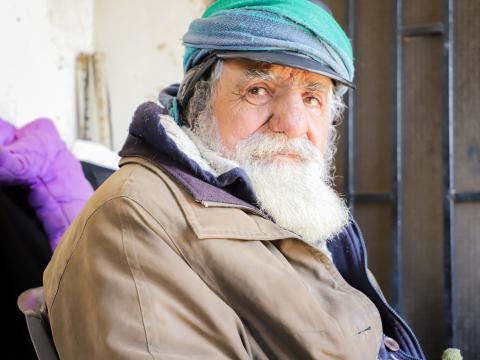
“Good old days” is a common expression cited by the older generation in Lebanon. If they had one wish, it would be to turn back time to the once better days. “Life was much easier back then. I was blessed to be able to raise 11 children. However, everything became too challenging lately. My children are barely able to take care of their own families – Sometimes I feel forsaken,” says 78-year-old Abdo.
The multidimensional crisis in Lebanon is getting grimmer by the day, positioning the country in the top three most severe crisis episodes globally since the mid-nineteenth century due to the unprecedented collapse of the currency, malfunctioning government, ongoing civil strikes and the enduring refugee situation. Abdo was always self-reliant and energetic, he never thought he will be crippled by sickness and an economic crisis. “I used to work every day in my land. I had a truck and a water cistern. I was self-sufficient. Things took a downward turn when I was diagnosed with hemiplegia (half-paralyzed) and had to rely on my daughter to take care of me. To make matters worst, four years ago, I broke my leg and it still needs surgery.”
Due to the economic situation, last winter was very severe for Abdo who spends most of his time alone at home. “I was not able to buy enough wood for the heater so is spent most of the time under blankets to stay warm. Moving around the house was a nightmare due to how cold it gets in the evening. I felt the cold penetrating my bones,” he says.
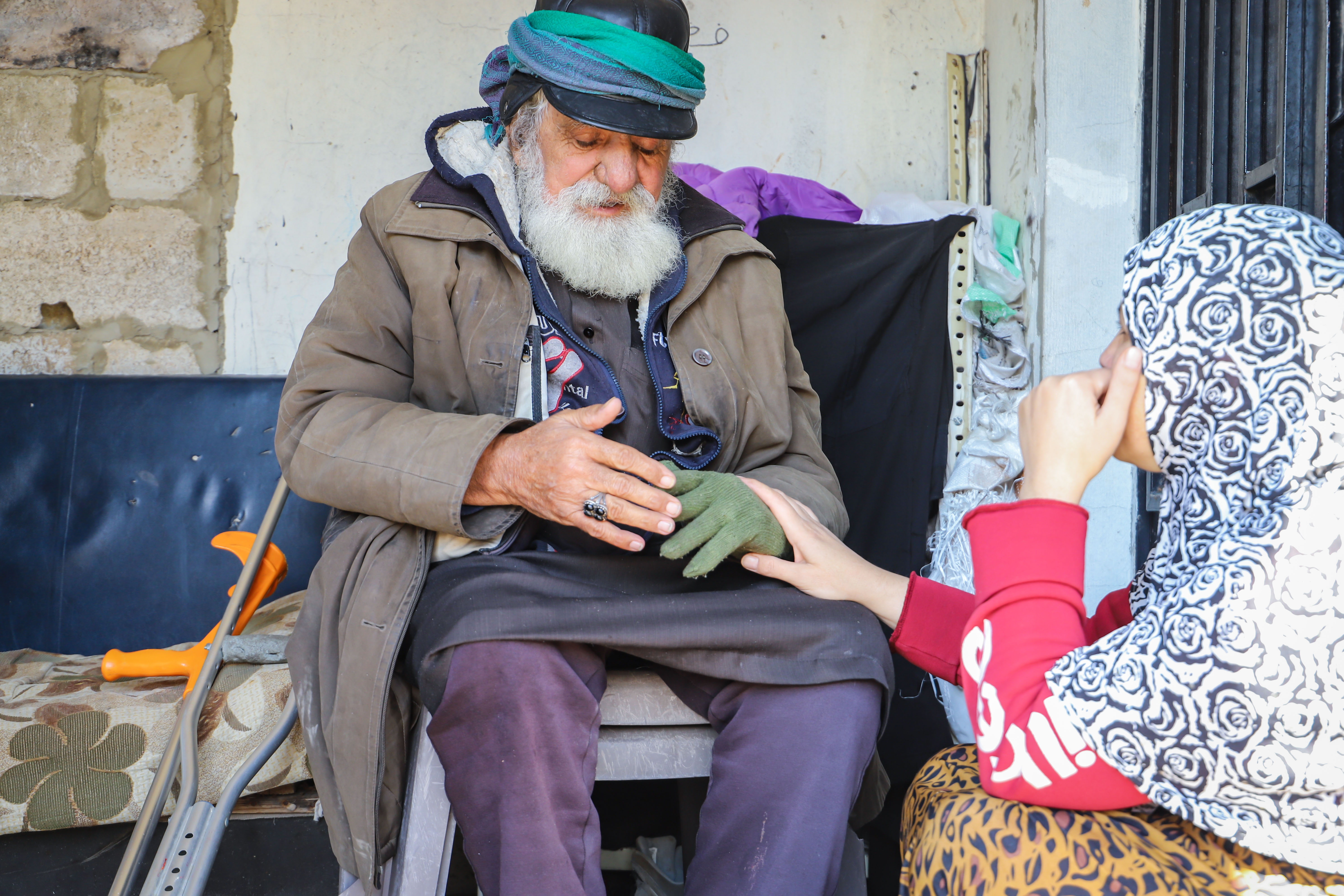
Under the Australian Humanitarian Partnership (AHP) Activation – Protracted Crisis Project, World Vision, funded by the Australian Government through the AHP, was able to support Abdo to meet the increasing costs of living through the provision of unrestricted and unconditional cash assistance. “Thanks to World Vision, this winter was much more tolerable. I received a total of 400 US$ during the previous year in winter cash assistance. I was able to buy some wood for the heater and pay for a doctor’s visit,” says Abdo.
Akkar, where Abdo and his family reside, is one of the most deprived areas of the country. According to qualitative findings from the livelihoods needs assessments conducted by World Vision Lebanon, business owners unanimously agreed that very few job opportunities exist in Akkar. They attributed this largely to the financial crisis, whereby the general public lost significant purchasing power, which in turn impacted the circulation of economic activity in the area. Therefore, the support under this project is very important for the livelihoods of the families in the region.
“Life can change in an instant,” reveals 47-year-old Roula. “Ten months ago I lost my husband due to bleeding in his main artery. Consequently, I found myself solely responsible for four children and a household.” The financial situation took a heavy toll on Roula and her family especially after losing the main provider of the family. “When my husband was still at the hospital we had to sell whatever is available in the house to pay for the hospitalization expenses; we sold most of the furniture, the washing machine, the television and even the refrigerator. Presently, I have to buy food day by day since I don’t have a fridge to store them.”
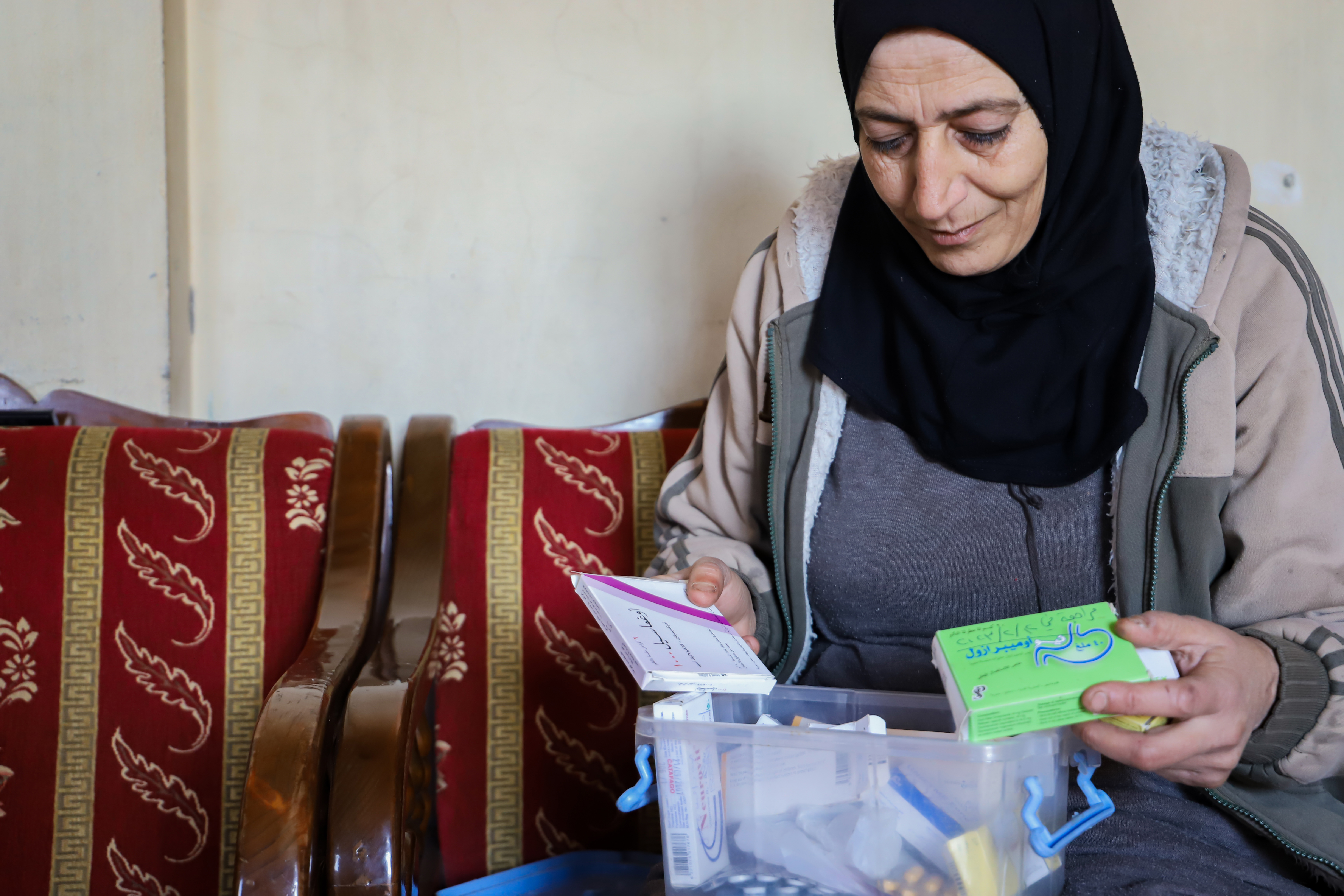
“I am very grateful to World Vision. Their support was very timely this winter. The team isolated the roof to reduce the humidity and added plastic sheeting to cover all the windows. Thanks to their work the home is warmer now,” reveals Roula. In addition to the weatherproof rehabilitation of her home, Roula also benefited from cash assistance under the project. “Moreover, thanks to the cash I received I am not forced to burn plastic in the heater to stay warm. I was able to buy some wood instead. Burning plastic is unhealthy for my children.”
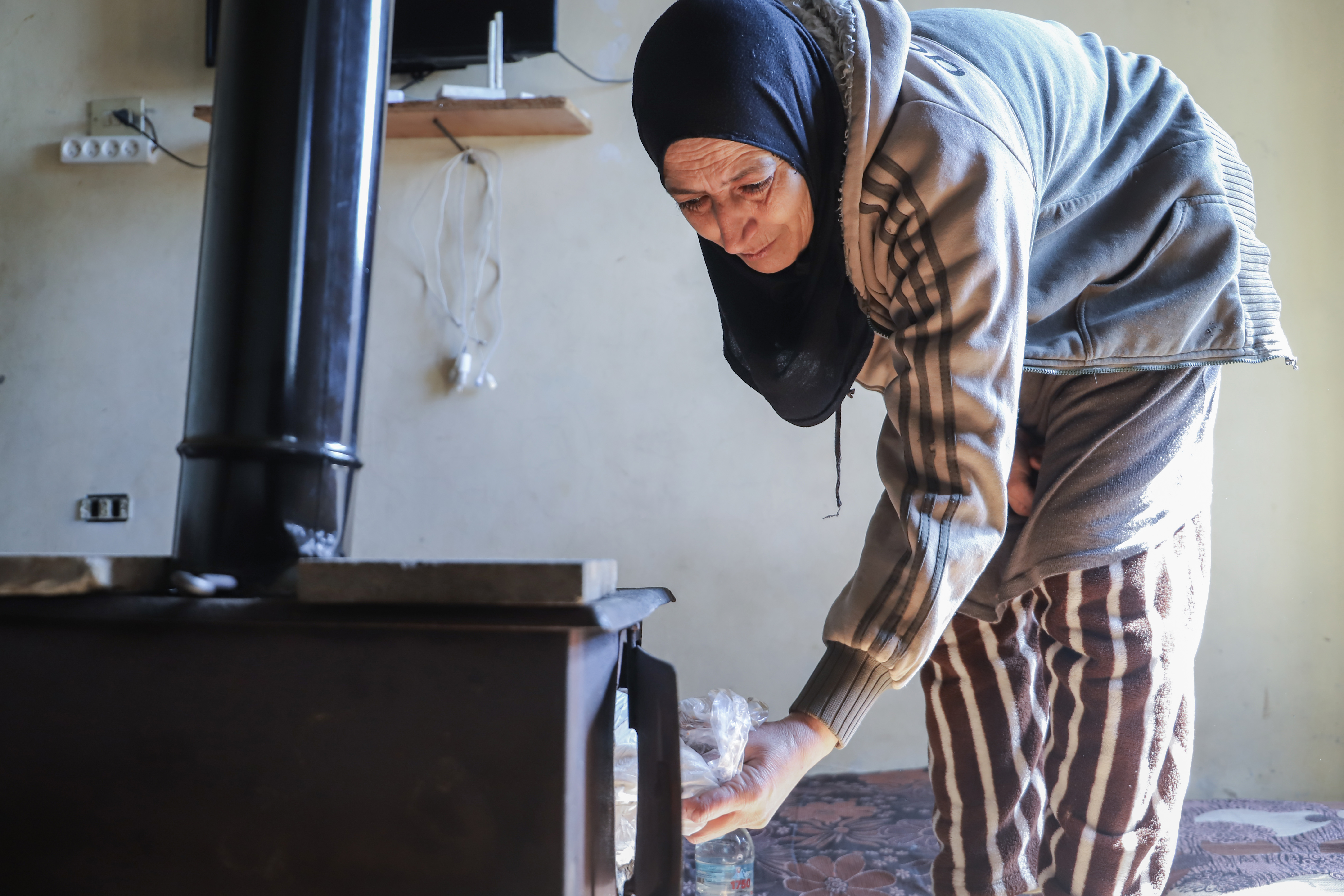
In addition to the cash assistance and rehabilitation, this project aims to increase awareness and support for alternative and sustainable heating methods – Wood made out of olive pomace is eco-friendly and contains high energy density compared with regular firewood and at a much lower cost than wood coal. “It is important to raise awareness on the importance of the olive pomace wood. Nowadays, people are looking for long-lasting and affordable alternatives for heating their homes. Olive pomace wood is the perfect solution,” says Tony Braidy, responsible at the Agricultural Cooperative in Kobayat.
World Vision is supporting 10 producers, including the Agricultural Cooperative in Kebayat, North Lebanon to meet the extra cost of packaging the olive pomace wood. “ The production phase usually takes around three to four months. It is also important to leave the final product (the wood) to dry well in the sun or under plastic sheetings such as the ones provided by World Vision,” explains Tony. “Oil prices are increasing fast, also the currency is constantly devaluating its value, therefore it is important to focus more on alternative methods. This sector needs a lot of support so it can provide a cheaper solution for vulnerable people during cold winter.”
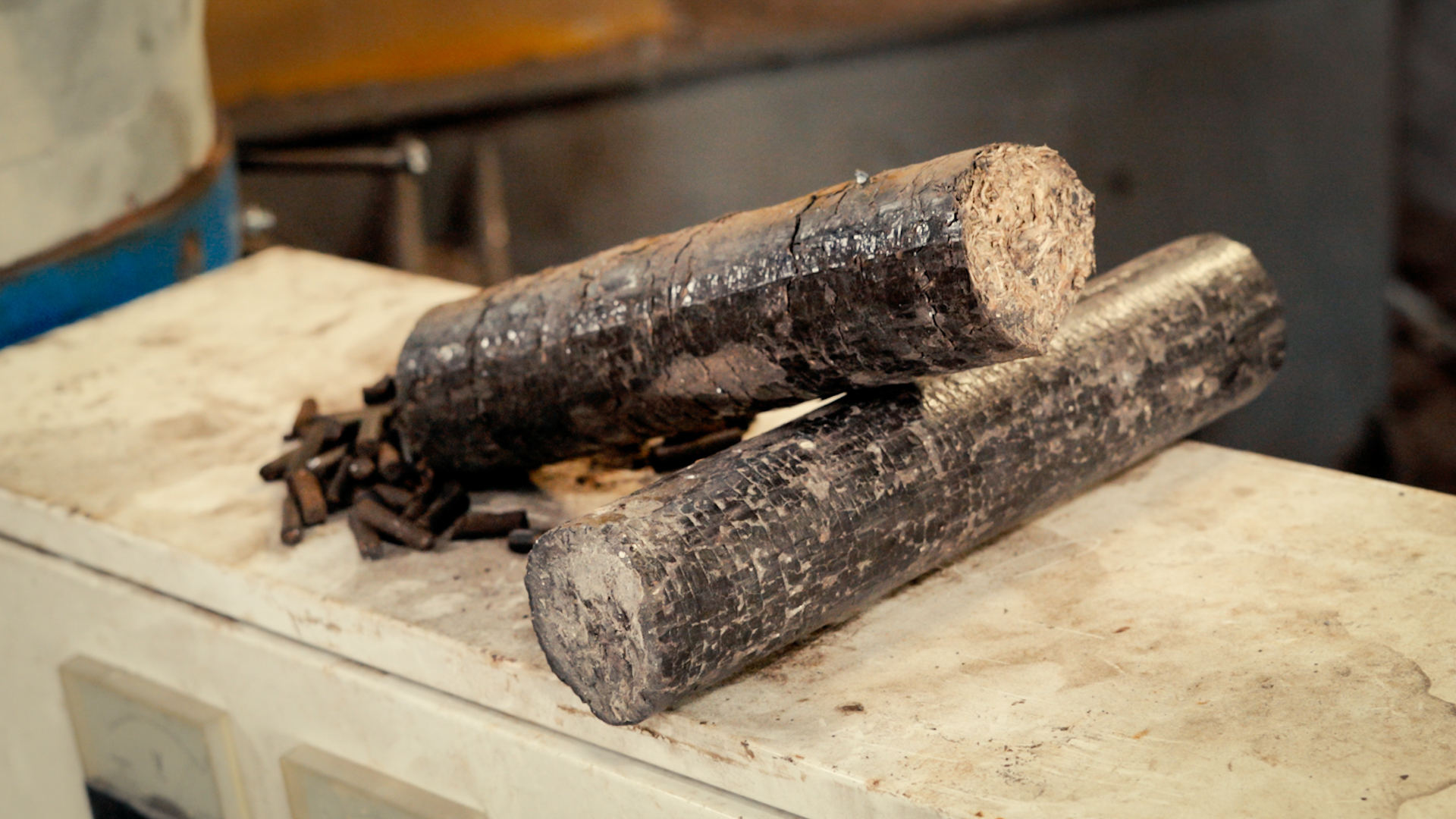
The winterisation project supported 11,159 highly vulnerable individuals in Akkar, North of Lebanon meet their winterisation needs and stay warm this winter through multi-purpose cash assistance, rehabilitation repairs and awareness messages.